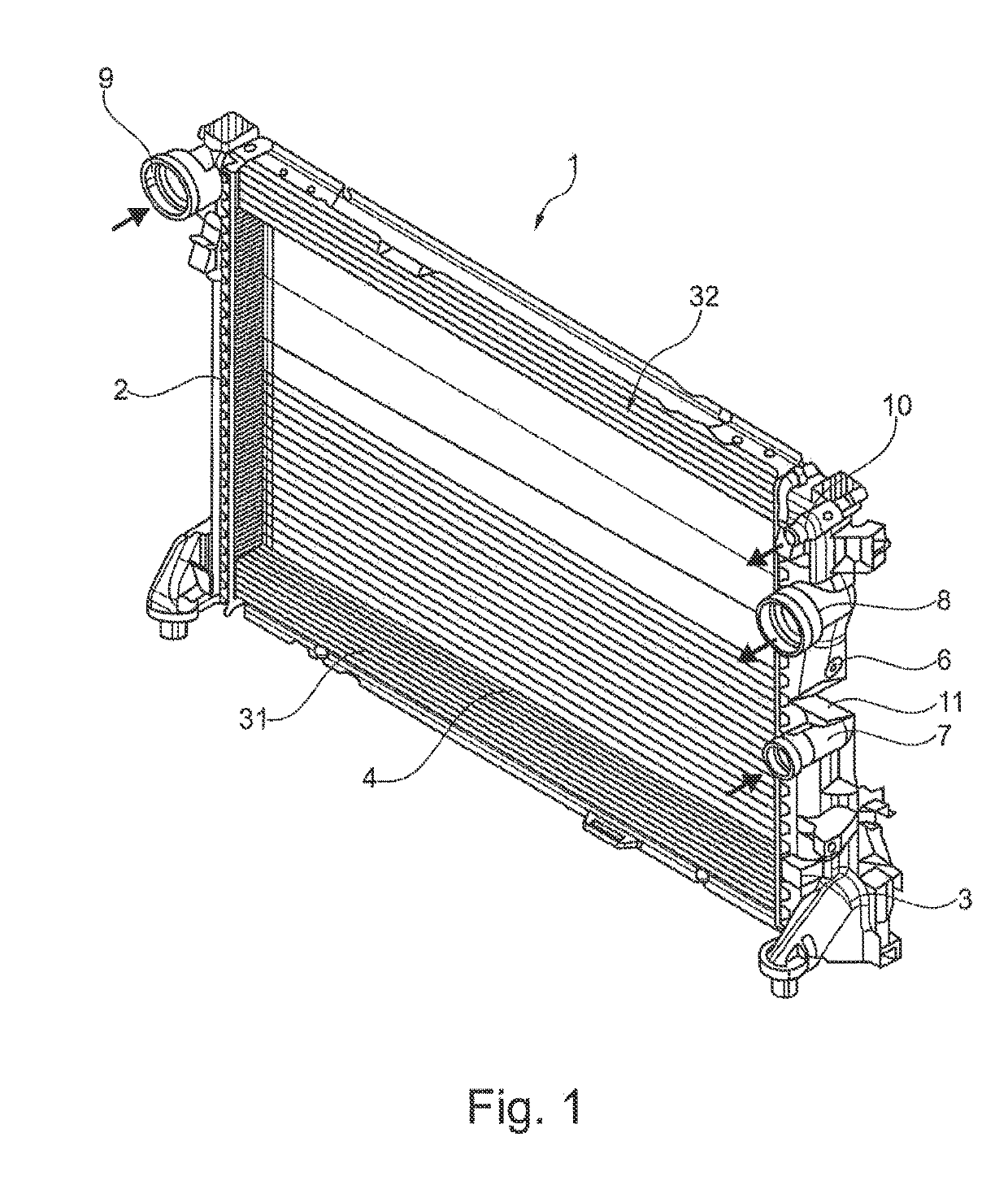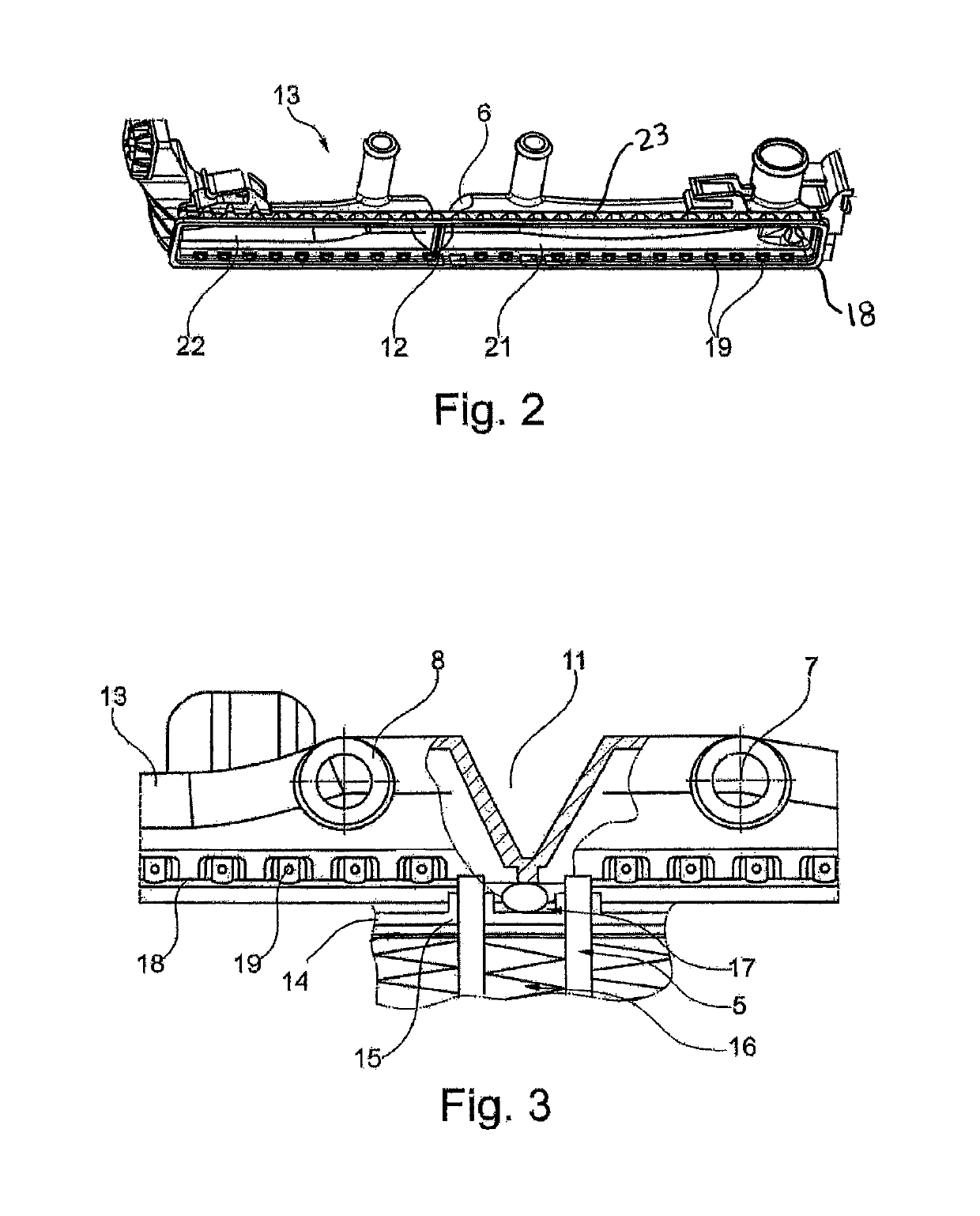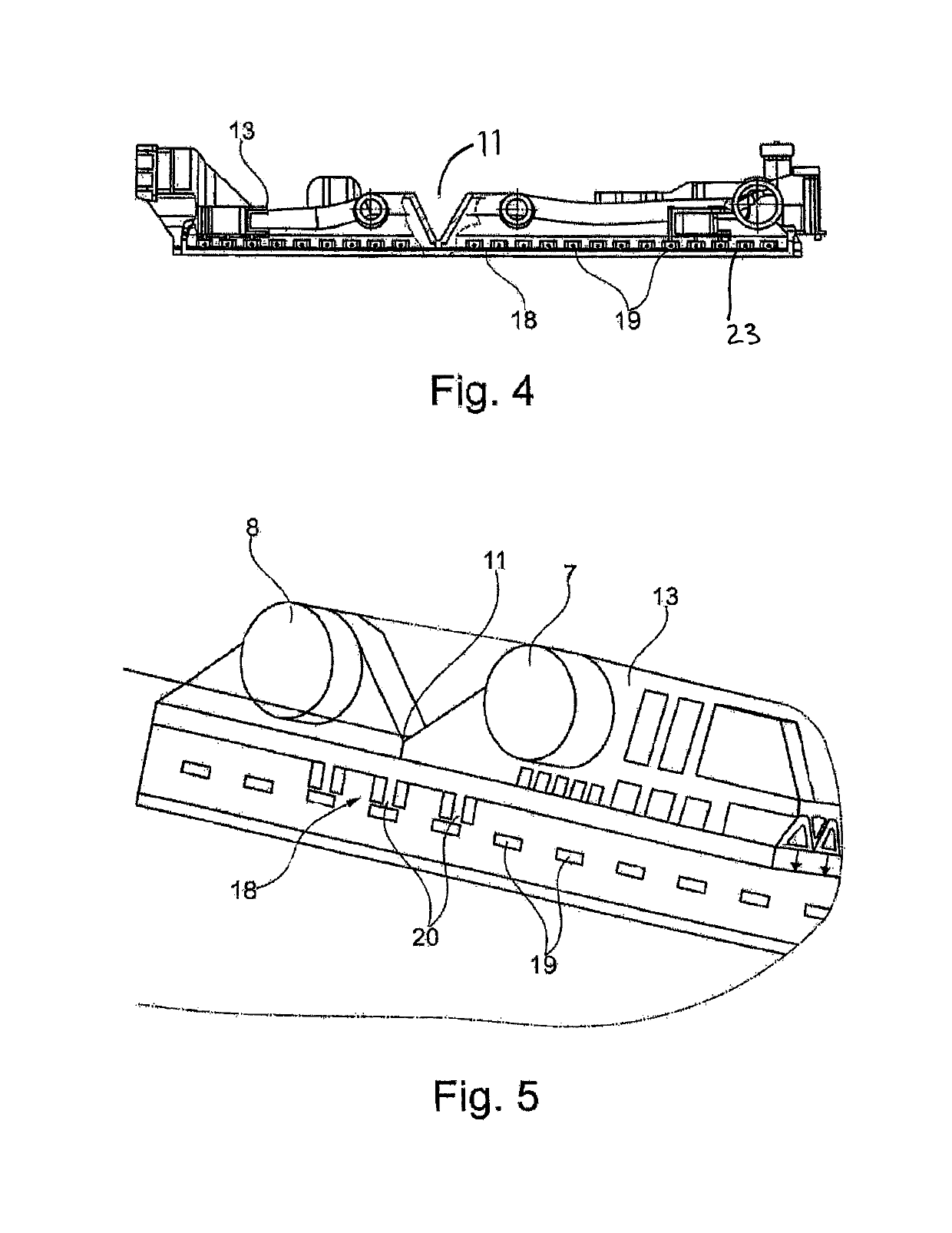Heat exchanger
a technology of heat exchanger and heat exchanger plate, which is applied in the direction of tubular elements, lighting and heating apparatus, and stationary conduit assemblies, etc., can solve the problems of increasing assembly effort and thereby the production cost of heat exchanger, and not ensuring the complete prevention of tube damage, so as to increase the cost of production
- Summary
- Abstract
- Description
- Claims
- Application Information
AI Technical Summary
Benefits of technology
Problems solved by technology
Method used
Image
Examples
Embodiment Construction
[0029]FIG. 1 shows a first exemplary embodiment of heat exchanger 1 of the invention. Heat exchanger 1 has two collecting tanks 2, 3, between which a tube-fin block 4 is disposed. Tubes 5 formed within tube-fin block 4 engage with their respective ends in collecting tanks 2 or 3. Collecting tank 3 has a recess 6, to which in the interior a partition wall 12 attaches, which divides collecting tank 3 into a high-temperature region 31 and a low-temperature region 32. This means that the illustrated heat exchanger 1 has a main circuit, which is realized by high-temperature region 31, and an integrated auxiliary circuit, which is formed by low-temperature region 32. Partition wall 12 in this case prevents the fluids to be cooled from intermixing within collecting tanks 2 and 3. High-temperature region 31 in this case has a medium supply connector 7 and a medium outlet connector 8. Low-temperature region 32 also comprises a medium supply connector 9 and a medium outlet connector 10, where...
PUM
 Login to view more
Login to view more Abstract
Description
Claims
Application Information
 Login to view more
Login to view more - R&D Engineer
- R&D Manager
- IP Professional
- Industry Leading Data Capabilities
- Powerful AI technology
- Patent DNA Extraction
Browse by: Latest US Patents, China's latest patents, Technical Efficacy Thesaurus, Application Domain, Technology Topic.
© 2024 PatSnap. All rights reserved.Legal|Privacy policy|Modern Slavery Act Transparency Statement|Sitemap



